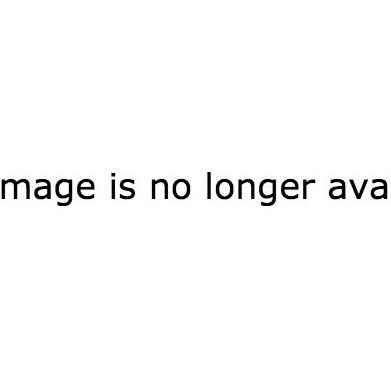Warning: This post contains major spoilers about the end of Captain America: The Winter Soldier — read at your own risk.

Captain America: The Winter Soldier is the most political movie in the Marvel Cinematic Universe. The competition admittedly has not been that tough — superhero movies are still mostly about spectacle and escapism, even as the genre's grown more ambitious and substantial over the past decade.
Marvel's thrown out hints of present day resonance as it's built out its movie franchise, mainly via Tony Stark's conflicted relationship with military contracting, but Captain America: The Winter Soldier is a step beyond, a blockbuster-as-thriller that manages to echo all sorts of contemporary fears about surveillance, secrecy, and the fundamental untrustworthiness of large institutions. It ends not in triumph but by breaking down the organization tying Marvel's different franchises together and scattering its characters to the winds.


The Winter Soldier of the film's title is Bucky Barnes (Sebastian Stan), Steve Rogers' (Chris Evans) old sidekick who's been brainwashed, cybernetically enhanced, and tossed on ice to end up in the present with his former friend. He's a terrifying opponent, but he's a misdirect, a pawn, and not the film's Big Bad. That honor actually goes to Robert Redford's Alexander Pierce, a member of the World Security Council, a man who, as his old colleague Nick Fury (Samuel L. Jackson) notes, once turned down the Nobel Peace Prize.
Alexander is not your typical supervillain, not in the sense that he wears a mask, has a dark past, and wants to destroy the world, and not in the way that he thinks about himself either. He's alarmingly ordinary, just slightly off from a plausible real world figure until the reveal that he's actually a part of HYDRA, a fascist terrorist organization. He's a politician, and he believes he's acting for the betterment of mankind. Even after his secret alliances and nefarious intentions to wipe out a sizable chunk of the population are revealed, he still tries to convince the others on the council to go along with his plans to control the public because he doesn't fundamentally believe what he's doing is wrong. We're not given the benefit of finding out about some formative moment that twisted him forever from his previous beliefs — he seems to be simply a wily man with too much power and a dark vision about what's best for humanity.

While past installments of the Marvel Cinematic Universe have had characters express doubt or distrust when dealing with S.H.I.E.L.D., Captain America: The Winter Soldier is an overt critique of the institution that brings up plenty of parallels to the non-comic book world. Beyond the oppressive plans with surveillance data and aerial strikes, there's also the underlying theme of secrecy and how dangerous a lack of accountability can be. However S.H.I.E.L.D. arrived at its secret plan to patrol the skies with heavily armed Helicarriers, it wasn't by popular vote.
While Captain America is out battling the Winter Soldier and trying to reach his childhood pal beneath the mindless assassin, the Black Widow (Scarlett Johansson) is serving as the film's Edward Snowden, saving the world by leaking classified data and exposing HYDRA's plans as well as her own dark past. Even a character vaunted for being morally flexible — Nick Fury is shown giving her missions he doesn't think Steve Rogers would be comfortable with — ends up believing the truth will set them all free, despite the personal price she'll have to pay.
The film allows that there are plenty of good people working for S.H.I.E.L.D., including the newly introduced Agent 13 (Emily VanCamp), but it shows how easily they could be led to participate in things that aren't good due to a lack of transparency. Total control and no oversight is only appealing when the person in charge can be absolutely trusted, and Captain America: The Winter Soldier makes it clear that no one deserves that kind of faith.

Well, no one except Captain America. Captain America: The Winter Soldier uses the earnest, old school beliefs of its protagonist as a contrast to some increasingly murky present day issues. Steve Rogers is still the straightforward, patriotic trooper he was in the 1940s, but amidst the complications of the contemporary world and the ruthless pragmatism his colleagues have adopted, his perspective is fresh and uncompromised. He's the film's driving moral force, rallying the remaining folks at S.H.I.E.L.D. and inspiring his colleague the Black Widow, the former spy, to sacrifice her own secrets in order to expose the traitors in their midst.
Captain America: The Winter Soldier ends up providing a counterpoint to the story being told on ABC's in-universe Agents of S.H.I.E.L.D., which is set for a big narrative shakeup this week thanks to the film's ending. If the film is about how it takes a guy from the past to point out the insanity of surrendering so many personal freedoms for the greater good in the present day, Agents of S.H.I.E.L.D. has been about learning why secrets and stratification can be necessary — about learning to love being The Man. It's taken its antagonistic hacktivist character Skye (Chloe Bennet) and turned her into a proud federal agent. And it's poised to be the route by which the Marvel Cinematic Universe finds its way back to S.H.I.E.L.D. (or something like it) after apparently dismantling the institution.
After all, like S.H.I.E.L.D., Marvel is also a giant organization prone to secrecy and dependent on bringing superheroes together. And despite the subversive edge of Captain America: The Winter Soldier, it seems unlikely that Marvel will stray too far away from the idea of an overarching, organizing force.
